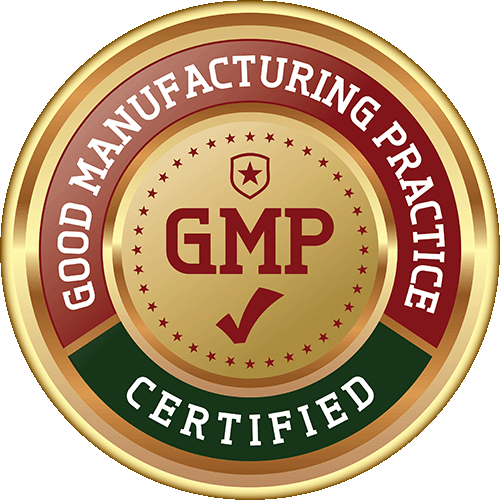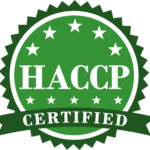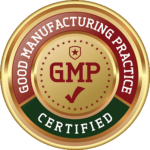Elate Brands is beyond proud that our kratom facility is certified GMP and HACCP by the SGS.
We’d love to brag about this fact every chance we get, but most people don’t know what those acronyms even mean. Or why they should care. Or what makes us so different from other kratom companies.
Therefore, please allow us to explain GMP for those who may not be familiar with its practices or importance. That way we can carry on with our bragging.
GMP Explained
Good Manufacturing Practices (GMP) are a set of guidelines that are designed to ensure that products are consistently produced and controlled according to quality standards. These practices are essential in the manufacturing, processing, and packaging of pharmaceuticals, food, medical devices, supplements, and cosmetics, among other products, to ensure that they are safe for human consumption or use.
These are also known as current Good Manufacturing Practices (cGMP). The terms GMP and cGMP are used interchangeably, with that extra little “c” simply serving as an added reminder for manufacturers to always stay up to date with the most current standards.
Compliance with GMPs is essential because it promotes product consistency and quality. It also reduces the risk of contamination, errors, and recalls.
GMPs cover all aspects of manufacturing, from the quality of the raw materials used to the finished product packaging. Manufacturers must have written procedures for all production operations, and the procedures must be followed precisely to ensure consistency in the manufacturing process. GMPs also require manufacturers to have ongoing training policies for all personnel.
It is important to note that Elate Brands products are neither pharmaceutical drugs nor dietary supplements, and we are not registered with the FDA. However, we do adhere to Title 21 of the Code of Federal Regulations, particularly Parts 111, 210 and 211. These codes outline the FDA’s current Good Manufacturing Practices.
Here’s a basic overview of GMP requirements:
- Manufacturing operations must be performed in a clean and sanitary environment.
- Equipment used in the manufacturing process must be of adequate size, design, and construction to facilitate cleaning and prevent contamination.
- The identity, strength, composition, and purity of the ingredients must be verified, and the correct ingredients and quantities must be used.
- Raw materials, finished products, and ingredients must be stored in appropriate conditions.
- Records must be kept of all manufacturing and production activities, including laboratory results, quality control tests, and personnel training.
The 5 “P”s of GMP
Another way to understand GMP is to focus on the so-called 5 “P”s:
People
The foundation of any organization is its people. We all know that a chain is only as strong as its weakest link, and that one bad apple spoils the bunch. That’s why a GMP facility is only interested in strong links and good apples.
All personnel should be well qualified for their role, with the proper education, training, and experience. Their responsibilities need to be clearly communicated and understood, and they must be fully trained and regularly assessed. All employees are to be held accountable for following procedures, and they are responsible for maintaining their own personal hygiene as well as the sanitation of their work environment.
Premises
If cleanliness truly is next to godliness, then a GMP facility should be one of the holiest places on Earth.
The premises includes not just the physical plant and grounds, but also the equipment and utensils used in production. Everything must be kept clean and sanitized at all times. All equipment also needs to be regularly validated, calibrated, and inspected for expected performance.
The property should be maintained to protect against contamination of any kind, with proper storage of materials, safe water supply and plumbing, effective pest control, adequate waste disposal, and more.
Processes
Nobody wants a manufacturer to just wing it.
Even if you have the best people and the cleanest premises, they can’t be effective without established processes for completing their work. All critical steps in every process need to be clearly identified and strictly followed. This results in a safe, consistent operation.
Documentation is key, as it not only helps keep track of the required processes, but it also provides a roadmap for auditors during an inspection. If any changes are made to a process, the documentation must be updated, and the changes should be communicated to all necessary staff and included in ongoing training programs.
Products
The goal is to create consistent products with no deviations throughout the manufacturing process.
There need to be clear product specifications for every stage of production, from raw materials to final product. Quality control is essential, which is achieved through constant testing.
In addition to product requirements for testing, manufacturing, packaging, labeling, holding, and distributing, there are also guidelines for how to handle product returns or complaints.
Procedures
This “P” could also be labeled “paperwork,” as it is all about creating documented guidelines for all critical processes.
Every process requires a written Standard Operating Procedure (SOP). All employees need to be trained on the SOPs relevant to their role, and these procedures must always be kept updated.
In fact, there should even be a procedure for updating procedures!
Bonus “P”
This bonus sixth “P” is just as important as the rest: proof!
After all, regardless of what regulations may say or companies may claim, people want to see proof of compliance. Reputable and responsible manufacturers recognize the need for the utmost transparency and verification.
That’s where GMP-certification comes in.
Proof
Although certification is not required by the FDA, many retailers and distributors require GMP-certification before carrying or promoting products. Additionally, adherence to GMPs promotes safety and instills consumer confidence.
Our manufacturing facility maintains certification through Society General Surveillance (SGS), an independent third-party organization. SGS is the global leader in testing, inspection, and certification. They perform our inspections and provide our GMP and HACCP certification.
This process involves an on-site audit by a team of certified auditors who evaluate the facility, processes, employees, and documentation. The audit assesses compliance with relevant regulations and standards. Upon successful completion of the audit, SGS issues a certificate that is valid for a specified period and requires ongoing surveillance audits to maintain certification.
SGS certification is well known and respected across multiple industries worldwide. Companies seeking certification should work with a reputable certification partner such as SGS to ensure they meet the necessary requirements and standards.
And buyers should only purchase from GMP-certified suppliers like Elate Brands.
Final Thoughts
Consistent manufacturing results in consistent products that the consumer can always trust. That’s ultimately why all this matters, as consumers should have faith in what they put into their bodies.
Unfortunately, not all companies even meet the minimum standards, let alone going the extra mile. These companies need to be avoided. Retailers and distributors should always verify that their suppliers are certified. If not, then they should not do business with them at all.
At Elate Brands, we’ve worked hard to earn that trust. And we have the certifications to prove it.






